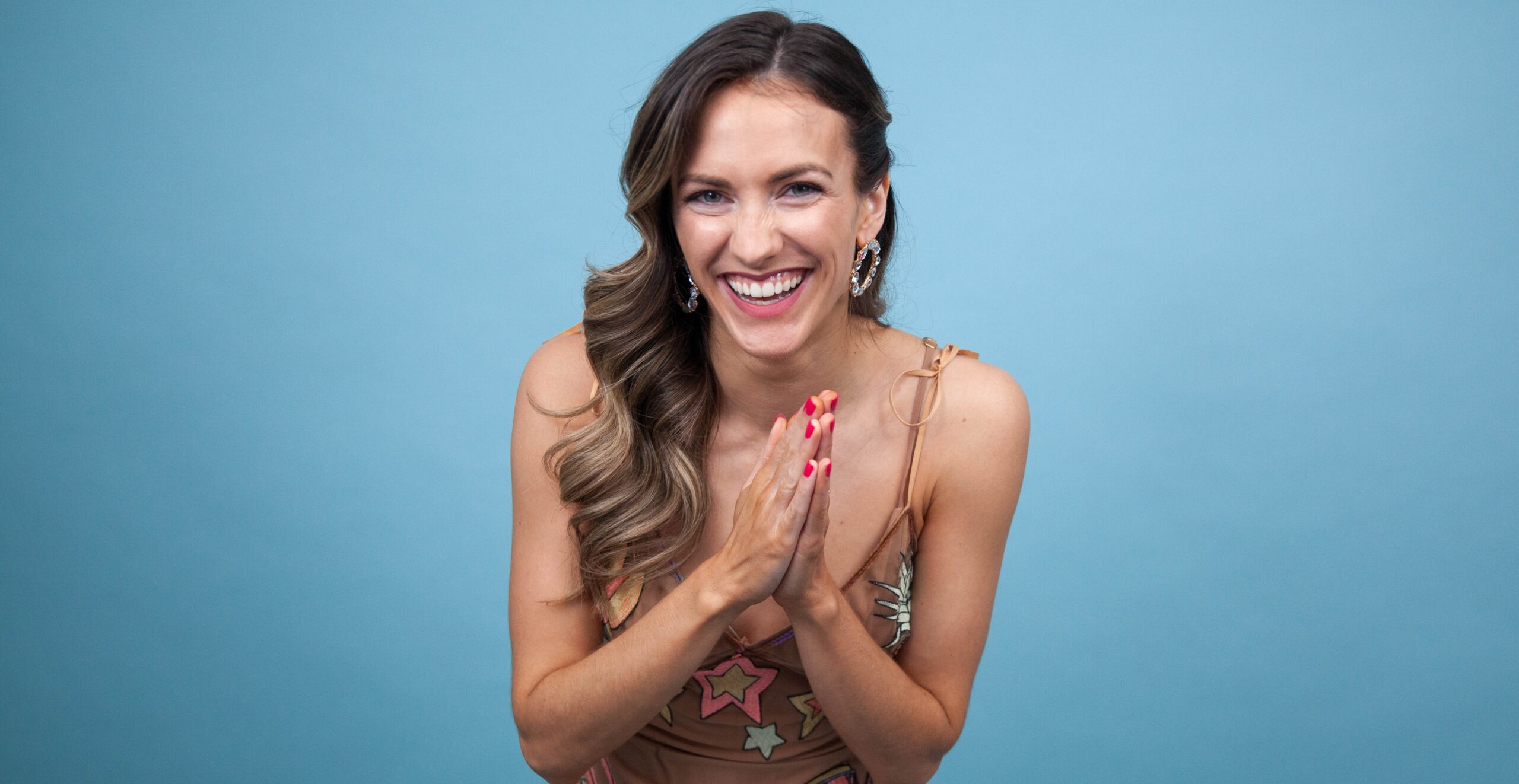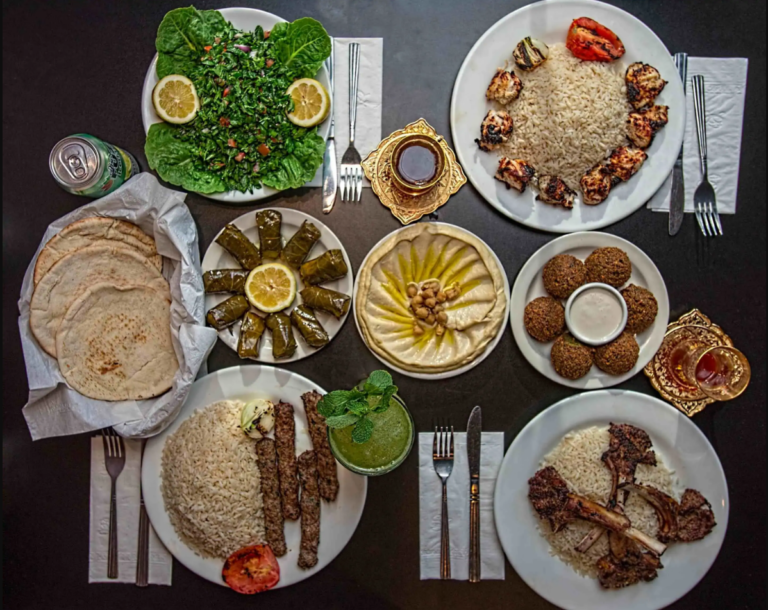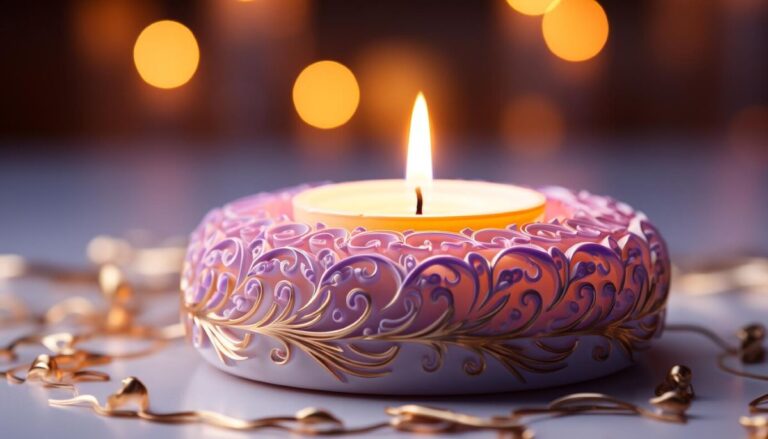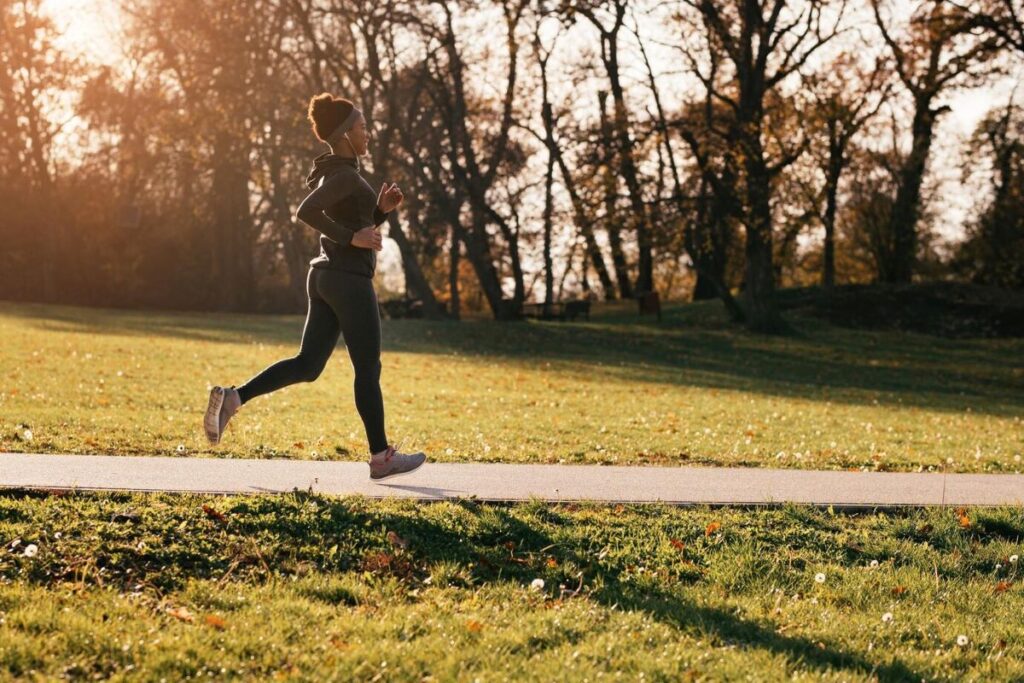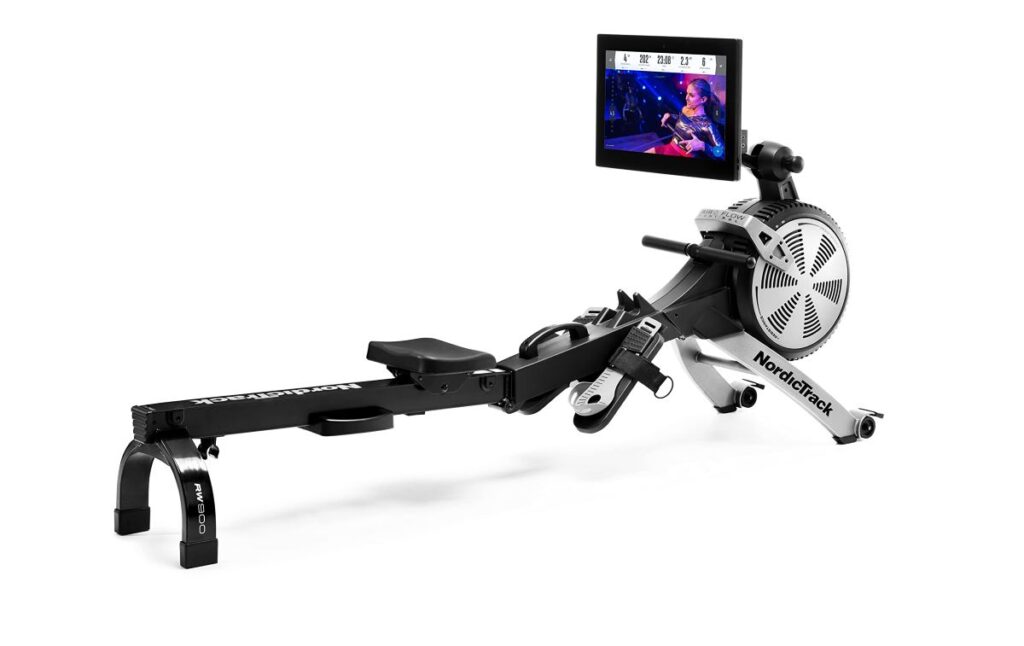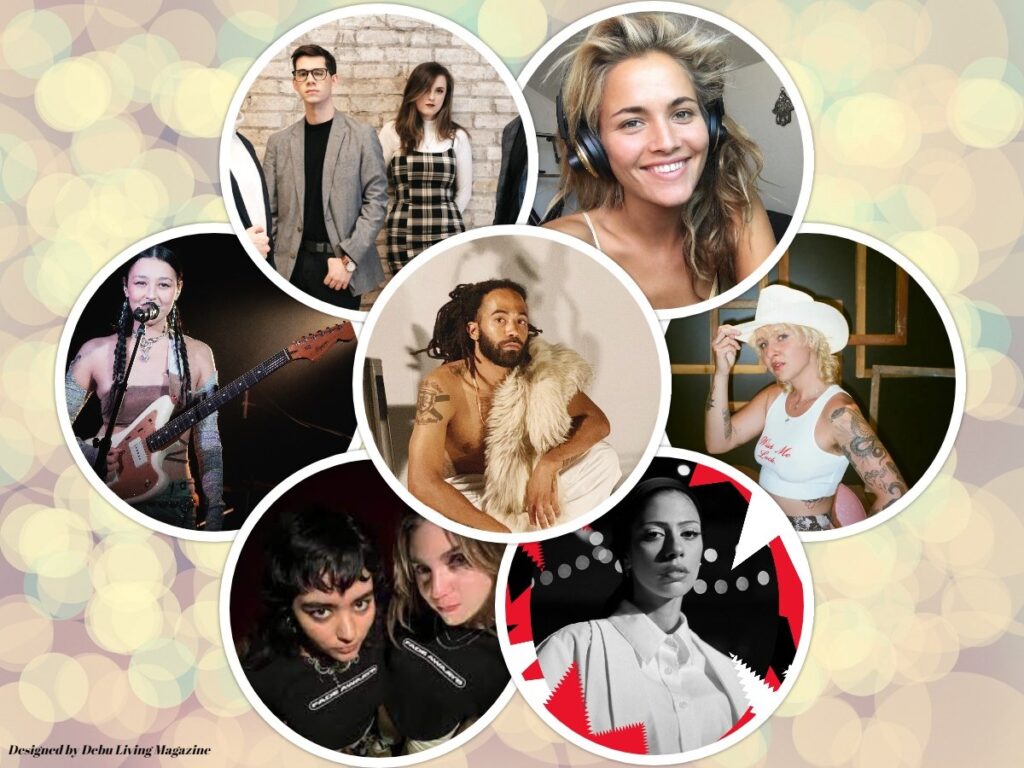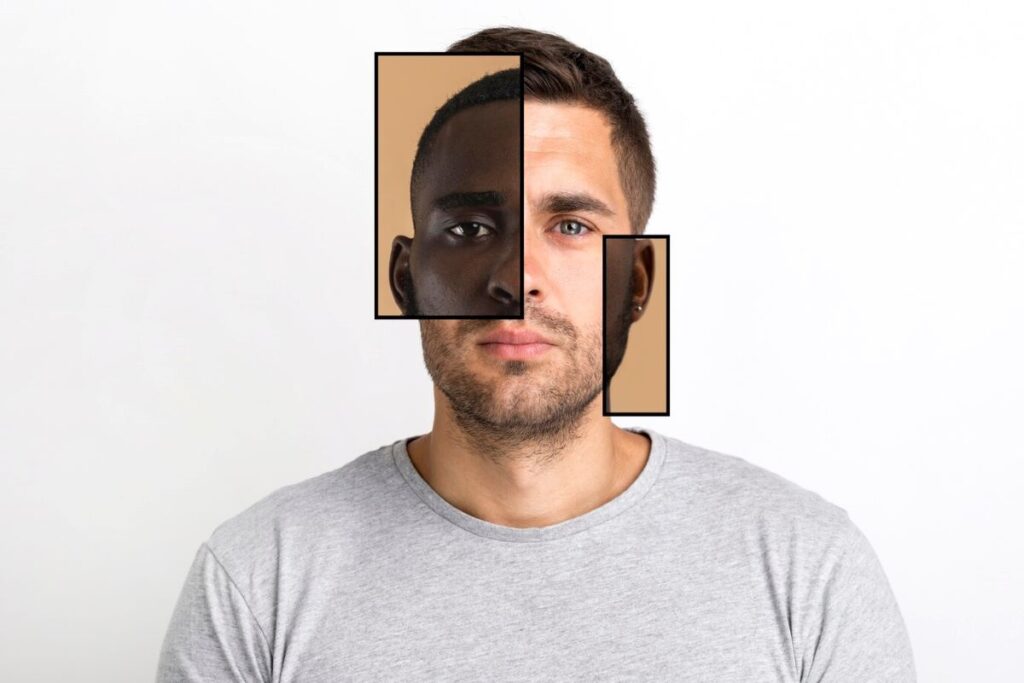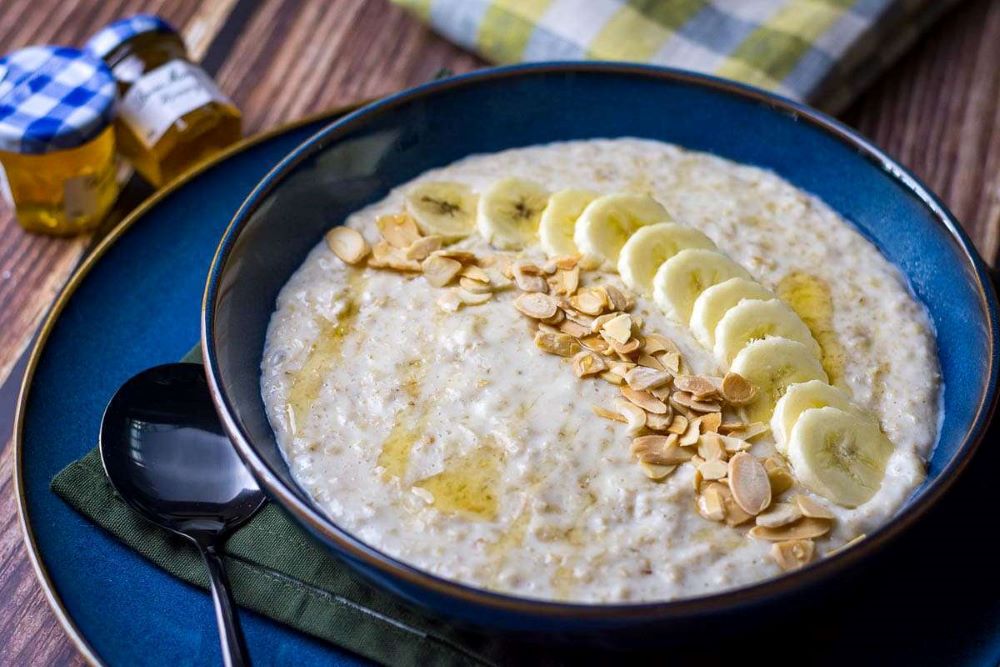Photo courtesy of Sam Larson.
The pandemic, as rough as it was, had a silver lining for Julie Nolke. The comedian, writer, video creator, and sketch artist came to national consciousness in April 2020 when she produced a satirical YouTube video that went viral. The video showed her going back in time and talking to herself about the chaos of the pandemic.
Dubbed “Explaining The Pandemic to My Past Self,” it now has 21 million views and was the springboard for what would eventually become a successful, one-million subscriber-strong channel that has amassed some three hundred million views, and continues to feature her humorous skits riffing on life’s foibles.
Last year, Nolke won a Webby Award — the most prestigious accolade for online video content makers. Nolke has had roles in movies, short films, and television shows, including Oil Men, Secret Society of Second-Born Royals, and What We Do in the Shadows. This September, she will begin a new chapter in her career with a Canadian production company and a new, 10-episode YouTube sketch channel. She’s also starring in season two of CBC’s Run The Burbs.
You’ve had some theatrical training — a Bachelor of Fine Arts at York University. Do you recall some of those skills and pieces of information and do you use them?
Oh my gosh, I use my classical training all the time. I think it is imperative to have a really strong foundation as an actor or creator before you can play. I’m not comparing myself to Jackson Pollock, but he could do an incredible still life. He had all of that formal training under his belt and then decided to go his own way. I think it’s the same with acting.
When I do a character with an accent, I like my accents to be very precise and accurate. That’s something I work on with tools I use from university. I use a lot of different tools to protect my voice if I’m yelling or singing in a sketch. On top of that, you get to be silly and play. But if you don’t have the foundation, longevity in the career is going to be difficult, and you’re going to be limited by your own crutches if you aren’t an open canvas ready to play.
You have corporate sponsorship and your channel is monetized. Elaborate on how this became an entrepreneurial venture and advice to give to other content creators.
Absolutely. I love talking about this stuff because I feel like I didn’t have anybody to guide me through.
Before 2020, before my channel blew up, I had been on YouTube for five years. I’d been on YouTube [and] made original content for other production companies. I’d always have a lot of irons in the fire because I think that’s necessary in this industry. I think those skills were crucial when I, ultimately, went viral. I’ve always had different pillars of income, so as not to be reliant on one stream.
Since I went viral, yes, the channel is monetized, [and] it brings in AdSense revenue. Several of my YouTube videos are branded. I do branded posts on Instagram. I have a Patreon. Sometimes I’ll sell merch. That allows me as a creative artist to have the financial freedom to create whatever I want because I’m not under the pressure of hitting those AdSense views. Make sure you have lots of different irons in the fire, different income streams, and that will give you some relief.
At what point, during the channel’s creativity, did you feel like you bumped yourself up a level?
I purchased some new camera equipment and new lights. That was a game changer for us. We had sort of a mess of a set up before. To have the better-quality gear, [be] more efficient, and have it look better, for me, even visually, that was a step up.
I also have an editor now. He’s worked with us for about a year and a half. That was a scary thing to do because I like to control my videos. He’s phenomenal. All of his videos now have his creative touch. I get pleasantly surprised. That was a good move on my part.
Dave Gordon | Associate Editor
